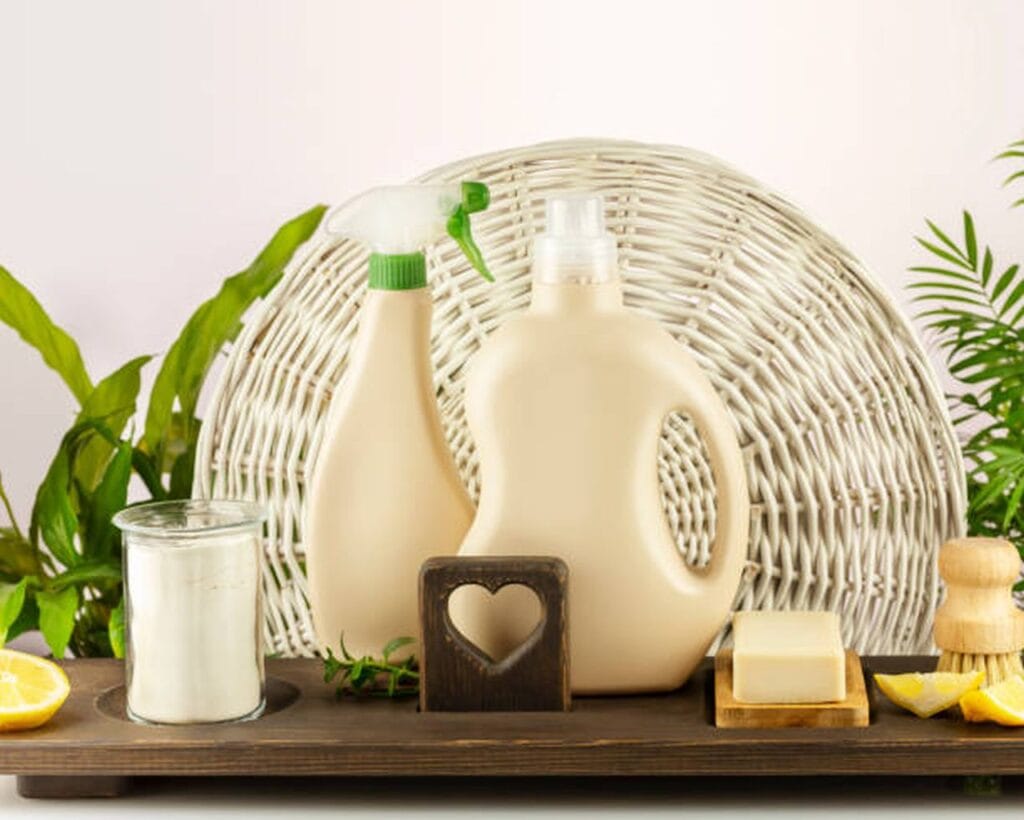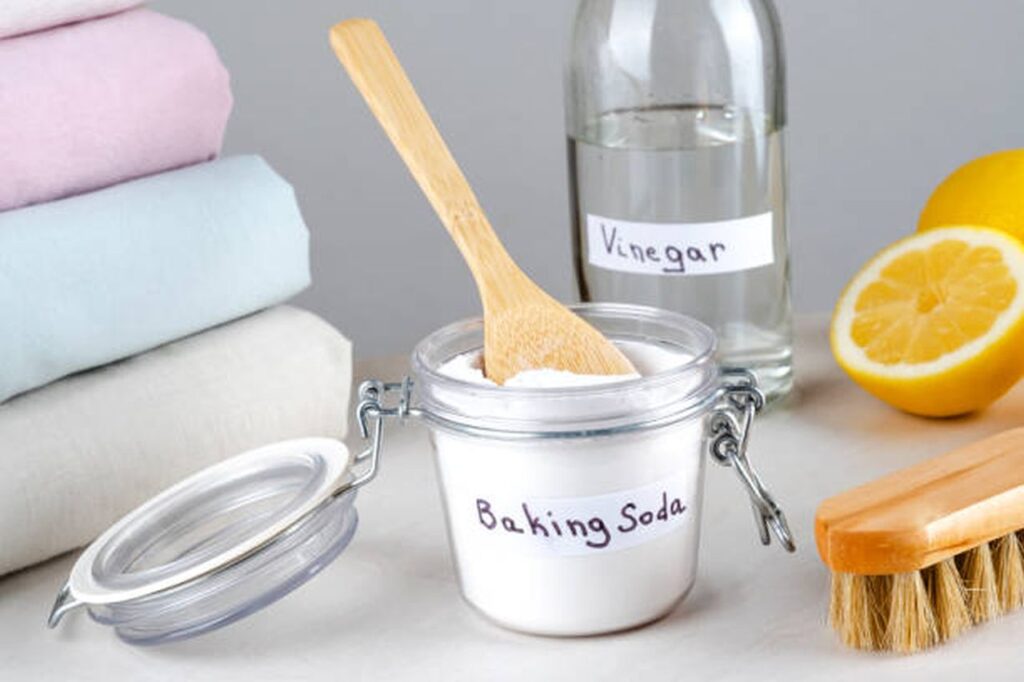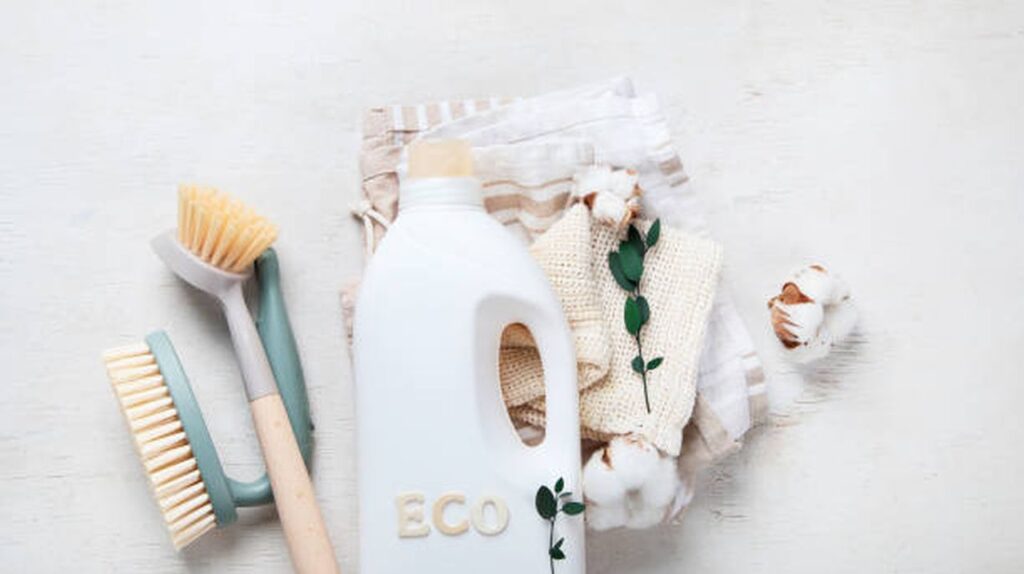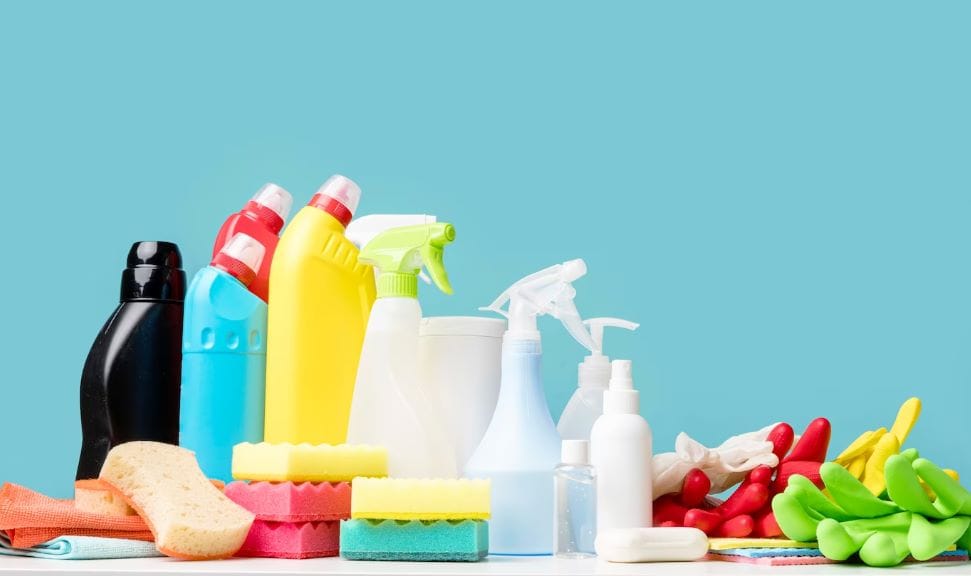Maintaining a clean and sanitary environment in commercial spaces is crucial for business operations and creating a favourable impression on clients, customers, and employees. The selection of cleaning products for commercial use has a significant effect on the space's cleanliness, hygienic conditions, and overall atmosphere. In contrast to residential settings, commercial environments are frequently subject to greater foot traffic, diverse cleaning requirements, and stringent standards. This article emphasises the significance of efficacy, safety, and environmental responsibility when selecting commercial cleaning products.
Selecting cleaning products for commercial spaces requires a strategic approach that considers the environment's particular cleaning challenges and needs. The cleaning needs of offices, retail stores, healthcare facilities, and hospitality venues vary. For example, healthcare facilities require products with strong disinfection properties to ensure patient and staff safety. In contrast, retail spaces may prioritise products that leave surfaces streak-free for a more polished look. To determine which cleaning products will yield the best results, it is necessary to assess the commercial environment's unique requirements.
When selecting cleaning products for commercial use, the most essential factors to consider are their effectiveness and efficiency. To be effective in commercial spaces, cleaning products must be able to handle high-traffic areas, difficult stains, and a variety of surfaces. Consider purchasing products that are labelled as effective against a broad spectrum of contaminants, including viruses, bacteria, and other pathogens. In addition, products with short cleaning and drying times are advantageous for maintaining productivity and minimising disruptions in commercial environments. It is crucial for maintaining compliance and safeguarding the health and safety of occupants that the cleaning products selected adhere to industry standards and regulatory requirements.
Environmental responsibility and safety are also important factors in selecting commercial cleaning products. Because commercial spaces frequently house diverse populations, including employees, customers, and visitors, selecting products with minimal health risks is essential. To enhance indoor air quality, choose cleaning products certified as safe for indoor use and contain low levels of volatile organic compounds (VOCs). Moreover, prioritising eco-friendly and sustainable cleaning products aligns with corporate social responsibility initiatives and contributes to a healthier environment for humans and the planet.

Reasons to Use Natural Cleaners
If you care about your health and the cleanliness of your home, using natural cleaning products is the best option. When inhaled, the toxic chemicals, pollutants, and fumes released by conventional cleaning products are harmful to our bodies. All-natural cleaners are non-irritating to the respiratory system and the skin. Consider these five arguments in favour of switching to non-toxic cleaning supplies.
You may have heard about natural cleaning products and their benefits, but you may not know what they are or how they work. Ingredients like baking soda, vinegar, and essential oils can be found in your kitchen cabinet and make up natural cleansers. The lack of potentially harmful chemicals like phthalates or chlorine bleach makes them preferable for your and the planet's health.
Because of their lower pH levels, natural cleaners are superior to commercial alternatives for scrubbing dirt and grime. This suggests that natural cleaners inhibit bacterial growth, unlike their conventional counterparts. All-natural cleaning supplies are a great way to protect your family's well-being and save money and resources.
The Microbiome Of The Home
You may be familiar with the term microbiome, which refers to the community of microbes that inhabit and reside on our bodies. But did you know that it is associated with a variety of health problems, such as allergies and asthma, diabetes, obesity, and even cancer?
Those who frequently clean their homes with products containing harsh chemicals have less of the good bacteria that contribute to good health, according to research. This may be because these cleaners eliminate both harmful and beneficial insects.
Like the microbiome in our digestive tract, the microbiome in our homes must be homoeostasis. We must eliminate harmful microorganisms such as E. coli, salmonella, and listeria. However, we do not wish to eradicate all bacteria from our dwellings. Some microbes are beneficial and assist in maintaining a robust immune system. Similar to the microbiome of the human body, the home requires a healthy equilibrium of bacteria.
Natural cleaning products promote a healthier microbiome in the home because they are gentler and do not eliminate all beneficial microorganisms. A floor cleaner is one of our housekeeping cabinets' most powerful cleaning chemicals. Standard floor cleaners can release noxious odours throughout the home. Natural floor cleaners effectively remove dirt and stains and leave behind a pleasant scent that isn't chemical.
Bleach Is A Derogatory Term
Toxic substances include bleach. It poses risks to people, animals, and ecosystems. Although bleach is not a naturally occuring substance, it is widely used in household cleaners due to its low cost and ease of incorporation.
Bleach can be made by mixing chlorine gas with sodium chlorite, hydrogen peroxide, and other chemicals. The resulting compound is either chlorine dioxide or sodium hypochlorite. Chlorine dioxide is a highly toxic gas used as a fumigant in farming that can cause lung failure and death if inhaled in large enough quantities. High quantities of sodium hypochlorite can cause skin burns because it breaks down into saltwater when blended with stomach acid, and it has been linked to asthma attacks because it irritates mucous membranes in the lungs.
Surfaces may be damaged rather than cleaned when cleaned with bleach-based cleaners. Mould quickly returns after being cleaned with bleach because the spores are killed on the surface but not at their roots. Toxic compounds and vapours are released during the process. Bleach can be used by mould growing on porous surfaces as a food source, fostering rapid and even more robust regrowth.
Vinegar is more effective than bleach at eradicating mould and does not emit the same toxic fumes. Clove essential oil is also excellent at sanitising and eliminating mould organisms without disrupting a home's healthy microbiome. So many commercial toilet cleansers contain bleach. Thankfully, plant-based and natural toilet cleaners are available. Using plant enzymes, the Every Bit Organic toilet bowl disinfectant is an excellent product. These eliminate pathogens without the use of harmful chemicals.
Non-Hazardous Ingredients
Common household cleansers are known to contain vast quantities of chemicals. Chemical cleaning products can emit volatile organic compounds (VOCs) that degrade indoor air quality. These known contaminants contribute to allergies, asthma, and other potential diseases. Children and pregnant women are especially vulnerable to the harmful effects of chemical cleaning products. If you've used a conventional lavatory cleaner, you may have experienced headaches or dizziness due to the fumes.
Safety is a major concern when it comes to cleaning supplies. If you have children or pets, you should ensure your products will not harm them. Natural cleaning products are preferable to conventional cleaning products because of the lack of harsh chemicals that can irritate the skin and lungs. They also have a lower potential for accidental poisoning, which is especially helpful for families with young children who may not be able to read product labels (or at all).
A natural bathroom cleanser eliminates soap scum, dirt, and grime with plant extracts such as eucalyptus. Natural cleaning products are significantly safer for you and your family. Natural cleaning products typically contain naturally antibacterial substances, such as tea tree oil, plant enzymes and essential oils. Over time, something like a chemical household cleaner, for instance, can be extremely hazardous. Nearly every day, we must use a kitchen cleaner to wash down surfaces and stovetops. Switching to a natural kitchen disinfectant is an excellent way to clean your food preparation area without harsh chemicals.

Label Visibility
Examine the label on your current cleaning product the next time you need to purchase new cleaning supplies. Do you understand its meaning? Have you ever questioned why there are so many components?
Manufacturing regulations do not necessitate that labels on cleaning products list all ingredients. The majority of commercially available cleaning products only list the active constituents. Determining which cleaning products contain hazardous chemicals such as chlorine, ammonia, synthetic fragrances, and solvents can be difficult. Natural cleaning products have nothing to conceal, so all ingredients are listed on the packaging. This means you can trust the products you're utilising.
Environmentally Conscious
Being eco-friendly is a good idea, but knowing what to buy and use at home can be challenging. Using natural cleaners has many benefits, including keeping your home clean while minimising your negative effects on the environment.
Natural cleaning products are better for the environment and your body. Eco-friendly cleaning products benefit the environment by reducing the amount of chemical compounds in your greywater system, which can hurt local plant and animal life. What's inside of the package is just as important as the box it came in. Think about how much laundry detergent is in the sewers after being rinsed. The use of a safe and all-natural laundry detergent will have no negative effects on the environment. Reusable bottles, bottles made from recycled materials, and zero-waste packaging from an environmentally conscious company all help reduce plastic usage and pollution.
In contrast to conventional cleaning products, which contain harsh chemicals such as bleach or phosphates (which can damage fish), natural cleaners are composed of ingredients such as baking soda and vinegar, which are safe for human consumption and effective at removing dirt.
Using natural cleaning products is safe because they don't harm the environment. Natural cleaners are better for the environment because they don't contain toxic chemicals that end up in our water supply. They are also more efficient than traditional cleaners regarding water and power consumption.
What Types of Cleaners Are There?
In general, industrial cleaning products can be divided into three distinct categories. Each category encompasses multiple subcategories, but these overarching divisions clarify the relationship between distinct products.
Liquid Based
Water-based cleansers are liquid products that contain water as their primary component. You put a rag, mop, or brush into the cleaner, typically sold in a large container or jug. Typically, water-based cleansers are measured, described, and differentiated based on their pH levels. Different pH levels make a cleaning product more or less suitable for specific tasks.
The cleaners on the acidic side of the pH scale, between 0 and 7, are ideal for removing mineral residues. This includes things like hard water deposits, rust, and detergent scum. Acids effectively cut through these deposits, dissolving them and separating them from the surface to which they are adhered. For instance, cleaners for toilet bowls are frequently acidic.
In contrast, cleansers on the alkaline side of the pH scale, between 7 and 14, are more effective at removing fats. Consider greases, waxes, oils, and even grime and filth. Alkaline is better suited to interact with and eradicate these chemical compounds.
When stocking up on water-based cleansers, it is essential to have ample quantities of both acidic and alkaline cleaners. If you only have one or the other, you will be well-equipped to combat certain types of discolouration but ill-equipped to combat others. By possessing both, you will be prepared for almost any scenario.
Solution-Based
In contrast to water-based cleansers, which contain water as their primary ingredient, solvent-based cleaners contain one or more chemicals. Nevertheless, solvent-based cleansers are acidic or alkaline based on the chemicals they contain.
Two categories of solvent-based cleansers are distinguishable. Cleaning products like chromium, steel, and wood are designed for specific surfaces. Then, generic, all-purpose cleansers can be applied to various surfaces and materials.
From a strictly economic perspective, one could immediately assume it is best to stock up on general cleaners and disregard the rest. However, this is not always the case. Even though general-purpose cleaners are useful in many situations, they are frequently ineffective on the most stubborn stains and markings. Using a generic cleanser to remove a stubborn stain frequently requires multiple attempts, resulting in lost time, money, and productivity.
Not only should you stock up on your favourite all-purpose cleansers, but you should also consider the types of surfaces you clean frequently and invest in products designed specifically for these situations. For instance, you may have multiple stainless steel surfaces. Rather than squandering time layering on an ineffective all-purpose cleaner, investing in steel-cleaning products would be well worth it.
Hydrolyzable Solvent-Based
Finally, the third category is a hybrid, incorporating elements of the previously mentioned categories. These cleansers contain a chemical as their primary component but are water-soluble, making them excellent cleaning solutions.
These cleaners are essential to any commercial cleaning arsenal and should be supplied alongside your other supplies. As with the other cleaners we've mentioned, these can be acidic or basic and are ideal for removing mineral stains or fats.
In addition, these cleaners can be formulated to target particular types of stains and grime, as well as particular materials and surfaces. Additionally, there are more multipurpose cleansers.
Although water-soluble cleaners are not replacements for the previous two cleaners, they combine their characteristics efficiently and effectively. Consider including these on your list of stocked supplies. Diversify your cleaning supplies by purchasing various appropriate products for the materials you frequently clean.
The Key Factors of a Cleaning Product
If you're unfamiliar with the terms, it can be challenging to decipher the labels on cleaning products. Due to this, it can be difficult to determine what distinguishes one cleansing agent from another and what makes one superior.
Thankfully, there is a helpful acronym for remembering the four primary components of any cleaning agent. The acronym TACT breaks down the four essential components of many cleaners:
- Always determine how long it will take a cleaner to complete the job. Does it require an hour to remain, or can it be cleaned immediately?
- Determine how a cleanser is intended to function. Does resting on it loosen dirt and grime? Does it require flow across a surface?
- The concentration of chemicals: How potent is the cleansing solution? It would be best to have something powerful enough to complete the task but not so powerful that it consumes the material and the soil.
- Temperature: Ensure that the chemical does not necessitate extremely heated water or other unusual temperature variations.
- Check a cleansing product for these four essential components. You will know the most vital information if you fully grasp these.
How Do You Determine Which Products to Buy?
Selecting cleaning supplies can be challenging when starting in the industrial cleaning industry. It can be difficult to determine which products are the most essential and which can wait until tomorrow.
Here are some guidelines to assist you in navigating this process:
Consider The Investment
Purchasing items of commercial quality is not always inexpensive. It can be tempting to opt for the marginally less expensive household grade. However, we advise against doing so. As previously mentioned, household-grade products are packaged in lesser quantities, meaning that you will purchase significantly more of them over time. This holds not only for cleansers but also for equipment. Although commercial equipment and cleansers may be more expensive initially, consider the money you will save over time and make the investment.

Prefer Efficiency To Gimmicks
Perhaps there is one product on the market that you find particularly intriguing and have been eager to test. The only issue is that it's impractical for your work, and you'd probably only use it once a year for a task that another tool you already own could perform flawlessly. In situations like this, it is prudent to abstain.
To maximise your budget's efficiency and effectiveness, attempt to purchase products that you will use frequently. Additionally, consider products that can serve multiple purposes in various circumstances.
Buy Sufficient To Rotate
You'll want to purchase sufficient cleaning supplies such as cloths, scrub brushes, and mop heads. Nothing is worse than being required to use one of these items only to discover that they are all filthy. Avoid this situation by purchasing sufficient quantities for rotation. Thus, you should never experience a situation where you are out of these products.
Attempt To Rent It
Pressure washers, floor machines, and auto scrubbers are all useful instruments you will likely employ occasionally. However, they are also costly. As you begin your cleansing, consider delaying the purchase of these items. Instead, it would be best if you rent them as you require them. If you need them frequently, the investment may be worthwhile. If they are not, however, you can save time and money by avoiding them.
Conclusion
Maintaining a clean and sanitary environment in commercial spaces is crucial for business operations, creating a positive impression on clients, customers, and employees. The selection of cleaning products for commercial use depends on the environment's unique needs, such as offices, retail stores, healthcare facilities, and hospitality venues.
Efficacy, safety, and environmental responsibility are essential when selecting commercial cleaning products. Products must be effective against a broad spectrum of contaminants, adhere to industry standards, and contain low volatile organic compounds (VOCs) levels. Natural cleaners, made up of ingredients like baking soda, vinegar, and essential oils, are non-irritating to the respiratory system and skin, making them a healthier option for both health and the environment.
The home's microbiome is associated with various health problems, such as allergies, asthma, diabetes, obesity, and cancer. Natural cleaning products promote a healthier microbiome by being gentler and not eliminating all beneficial microorganisms. Floor cleaners effectively remove dirt and stains, leaving a pleasant scent behind.
Bleach, a toxic substance, poses risks to people, animals, and ecosystems due to its low cost and ease of incorporation. Bleach-based cleaners can damage surfaces and encourage mould growth on porous surfaces. Vinegar is more effective than bleach at eradicating mould and emitting less toxic fumes. Clove essential oil is also excellent at sanitizing and eliminating mold organisms without disrupting a home's healthy microbiome.
Plant-based and natural toilet cleaners, such as Every Bit Organic toilet bowl disinfectant, are available, eliminating pathogens without harmful chemicals. By choosing these cleaners, businesses can maintain a healthier environment and create a positive impression on their customers and employees.
Natural cleaning products are safer and more environmentally friendly than conventional cleaning products due to their lack of harmful ingredients and lower potential for accidental poisoning. They are also more effective at removing dirt and grime, making them suitable for families with young children who cannot read product labels.
Natural cleaning products are also more visible on the packaging, as manufacturers do not require all ingredients to be listed. This ensures that consumers can trust the products they use. Additionally, natural cleaners are more environmentally conscious, as they reduce the amount of chemical compounds in greywater systems, which can negatively impact local plant and animal life.
Three main types of cleaners are liquid-based, acidic, and alkaline. Acidic cleaners are ideal for removing mineral residues, while alkaline cleaners are more effective at removing fats. Having both types of cleaners in your household is essential to ensure the best results.
In summary, natural cleaning products are safer, more environmentally conscious, and more efficient than conventional cleaners. By choosing natural cleaners, you can maintain a clean home and reduce the negative effects of chemical cleaning on the environment.
Solvent-based cleaners are acidic or alkaline and come in two categories: general-purpose and hybrid. General-purpose cleaners are useful for cleaning surfaces like chromium, steel, and wood, but they may not be effective on stubborn stains. Invest in products designed specifically for these surfaces to save time, money, and productivity.
Hydrolyzable solvent-based cleaners combine elements of both categories and are water-soluble, making them excellent cleaning solutions. They can be acidic or basic, ideal for removing mineral stains or fats, and can be formulated to target specific types of stains and grime, as well as materials and surfaces.
To determine which cleaning products to buy, consider the investment, efficiency, efficiency to gimmicks, purchasing sufficient quantities for rotation, and renting equipment as needed. For example, if you only use one product per year, avoid using it for a task that another tool can perform flawlessly.
When choosing cleaning supplies, consider the following factors: considering the investment, preferring efficiency to gimmicks, purchasing enough for rotation, and renting equipment as needed. Doing so can maximize your budget's efficiency and effectiveness in the industrial cleaning industry.
Frequently Asked Questions About Cleaning Services
How does cleaning your room affect you?
If a messy house makes us feel out of control, picking up gives us a sense of mastery and control. Similarly to exercise, cleaning releases a surge of endorphins that help stabilise our mood and calm the mind.
How do disinfectants affect microbial growth?
The disinfection process inactivates most microbes on the surface of a fomite by using antimicrobial chemicals or heat. Because some microbes remain, the disinfected item is not considered sterile. Disinfectants should be fast-acting, stable, easy to prepare, inexpensive, and easy to use.
How do disinfectants and antiseptics affect bacteria?
Antiseptics and disinfectants are both widely used to control infections. They kill microorganisms such as bacteria, viruses, and fungi using chemicals called biocides. Disinfectants are used to kill germs on nonliving surfaces. Antiseptics kill microorganisms on your skin.
What part of the house has the most bacteria?
The National Sanitation Foundation (NSF) found that areas where food is stored or prepared had more bacteria and fecal contamination than other places in the home. Over 75 per cent of dish sponges and rags had Salmonella, E. coli, and fecal matter compared to 9 per cent on bathroom faucet handles.
How can you clean your room, and why is it important?
When you vacuum and dust your bedroom regularly, you ensure the air is clear of allergens and dust particles. Moreover, it also prevents bacteria and viruses from harbouring in your home. With clear and fresh air, your sleep will be better and healthier.
